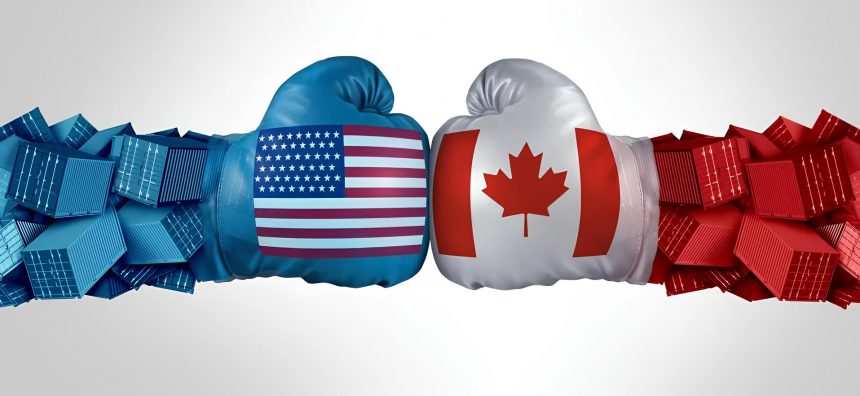Ottawa, May 23, 2025 — Canada has announced a fresh wave of retaliatory tariffs in response to the United States’ decision to reimpose duties on key Canadian exports, including steel, aluminum, and components used in electric vehicle (EV) production.
Deputy Prime Minister and Finance Minister Chrystia Freeland confirmed the countermeasures during a press conference in Ottawa, declaring that Canada “will always defend its workers and industries from unfair and unilateral trade actions.”
“These U.S. tariffs are unjustified and damaging to both our economies,” Freeland said. “We are responding proportionately and in accordance with international trade law.”
What Prompted the Response?
The U.S. administration, under increasing pressure from domestic industry groups and unions, reintroduced tariffs of up to 10% on aluminum and 15% on certain steel products earlier this month. It also imposed new restrictions on components used in renewable energy projects and electric vehicles, citing national security and supply chain independence.
Washington claims the measures are necessary to counter unfair competition and reduce dependency on foreign manufacturing.
But Ottawa sees it differently.
“Canada has been a reliable, rules-based trading partner for decades,” Freeland stated. “These actions undermine the very foundation of the USMCA agreement.”
Canadian Countermeasures
In response, the Canadian government will impose its own tariffs targeting a $6 billion slice of U.S. exports to Canada. The products affected include:
- U.S.-made recreational vehicles and boats
- Processed food items such as ketchup and peanut butter
- Household appliances and some agricultural equipment
- Select building materials and finished metals
These measures are designed not only to pressure the U.S. economically but also to apply political pressure in key manufacturing states ahead of the 2026 U.S. midterm elections.
“We are targeting products from states whose representatives support these damaging tariffs,” said a senior official from Global Affairs Canada.
Industry Reactions
Canadian manufacturers and exporters welcomed the government’s swift action. The Canadian Steel Producers Association (CSPA) praised the move, stating it was necessary to protect jobs and maintain fair trade.
However, some economists have warned that escalating trade tensions could hurt both economies at a time of global uncertainty.
“Retaliatory tariffs may be justified, but they can also lead to prolonged disputes and inflationary pressure,” said University of Toronto trade expert Laura Dawson.
What Comes Next?
The federal government has signaled that it remains open to dialogue but will not back down without reciprocal movement from Washington.
Meanwhile, businesses on both sides of the border are bracing for higher costs, disrupted supply chains, and potential job losses — a painful reminder of the 2018 trade spat under the Trump administration, which also saw tit-for-tat duties on steel and aluminum.
Sources:
- Government of Canada, Department of Finance: Statement on U.S. trade actions and Canadian response
- Reuters: “Canada to impose retaliatory tariffs after U.S. metals duties”
- CBC News: “Canada hits back with $6B in tariffs after U.S. imposes new duties”
- U.S. Department of Commerce: Trade Policy Updates – April/May 2025






